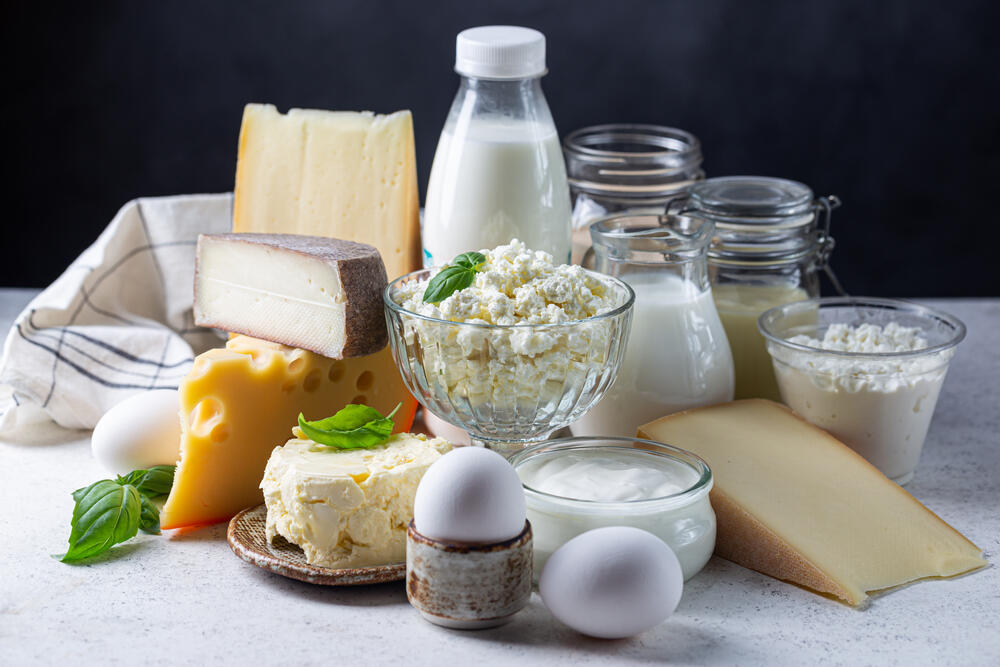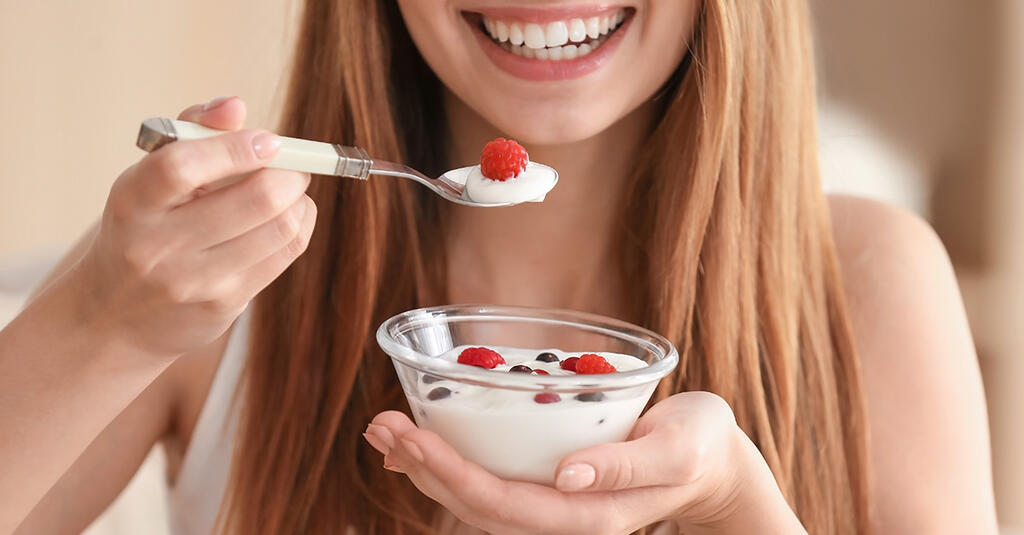With Shavuot approaching, often called the "Festival of Dairy Products," it's a good time to explore what's really inside the dairy products we enjoy every day. These ingredients enhance flavors, create colors, and extend shelf life. Let's dive in.
Hard Cheese
Hard cheese typically has a high fat content and a yellowish hue. This color can occur naturally or be the result of added food coloring. Cows grazing on grass produce milk containing beta-carotene, an orange-colored, fat-soluble compound. The higher the fat and beta-carotene content, the more orange the milk. Conversely, cows fed on mixed feed, not grass, produce white milk, resulting in white cheeses.
In Israel, hard cheeses often have added food colorings to achieve the familiar yellow color. Cheeses made from buffalo, goat, or sheep milk are always white.
Food Colorings
The main food colorings used in Israel are annatto and beta-carotene, both natural. Beta-carotene, abundant in plants, fruits, and vegetables, is an orange food additive and a precursor to vitamin A. It's safe to use, but excessive consumption can lead to carotenodermia, a harmless condition that turns the skin, especially the palms, orange.
Annatto, another natural food coloring with an orange-yellow hue, is derived from seeds containing antioxidant compounds that prevent cell oxidation and inflammation, thus benefiting health. While generally safe, some individuals with food additive allergies or sensitivities may experience allergic reactions or digestive discomfort from annatto.
Preservatives
In addition to food colorings, many yellow cheeses contain preservatives to extend their shelf life. Potassium sorbate, labeled as E202, is widely used in the food industry, particularly in yellow cheeses, to inhibit the growth of mold, yeast, and fungi. Approved as safe by numerous food safety authorities, including the FDA, EFSA, and WHO, potassium sorbate is generally safe for consumption at levels used in food products. However, rare cases of allergic reactions or digestive discomfort (such as stomach pain or diarrhea) have been reported.
Some yellow cheeses are available without food colorings or preservatives, but they typically have shorter shelf lives. It is always preferable to consume natural products, especially for those with digestive sensitivities. White cheeses (5% and 9% fat) usually contain no additives, except for milk and a small amount of salt, which acts as a natural preservative.
Salt and Other Additives
In contrast to white cheeses, Bulgarian cheese often contains significant amounts of added salt and other ingredients marked with an E number, such as E202 (potassium sorbate) or E575 (acidity regulator) or food coloring. E141 is a natural green food coloring made by replacing magnesium in chlorophyll with copper, resulting in a stable green color. Chlorophylls, natural nutritional components found in many foods, are water-soluble and excreted in feces, making their consumption as food additives safe. Only individuals with conditions leading to copper accumulation need to limit consumption of cheeses containing this food coloring.
Sour Cream and Cooking Cream
Sour cream, sweet cream, and cooking cream usually do not contain added salt. Most sour creams are free from preservatives or food colorings and are entirely natural. However, some cooking creams may contain added dietary fibers and processed tapioca starch, which are not harmful and may even benefit intestinal activity.
Sweet Cream
Sweet cream often contains high fat concentrations along with numerous stabilizers and emulsifiers. Ingredient lists may include unfamiliar numbers indicating various stabilizers (E412, E466, E407) and emulsifiers (E433, E471). Emulsifiers help combine ingredients like oil and water, which do not naturally mix, and allow for the production of low-fat foods. Stabilizers, used in combination with emulsifiers, prevent ingredient separation after mixing.
Yogurt
Yogurt is a dairy product created by fermenting milk with bacteria. In yogurt production, probiotic bacteria are added to the milk. Most yogurts also contain stabilizers like pectin or locust bean gum, which benefit the digestive system and human health.
Pectin is a naturally occurring fiber in fruits and vegetables, widely used in the food industry as a stabilizer and thickener due to its gelling properties. Health-wise, pectin fibers are soluble fibers that support regular bowel movements, prevent constipation, and help balance cholesterol and blood sugar levels. Locust bean gum, another soluble fiber, can act as a prebiotic, promoting the growth of beneficial gut bacteria, thereby enhancing gut health and immune function. Like pectin, it helps balance blood sugar and reduce cholesterol levels by binding to bile acids in the intestines, leading to their excretion in feces. If the yogurt is low in calories, it may contain artificial sweeteners instead of added sugar.
Sugar Additions
It's important to note that some dairy products are enriched with sugar beyond the natural lactose found in milk. Dairy products containing more than 5 grams of sugar per 100 ml of liquid food or 10 grams of sugar per 100 grams of solid food are currently labeled with a red tag by the Ministry of Health to inform consumers of the high sugar content. Many dairy desserts designed for children contain high sugar concentrations.
The dairy industry manages to keep supermarket shelves stocked thanks to its ability to produce stable dairy products with uniform texture and extended shelf lives. To meet these demands, the food industry often adds salt, preservatives, emulsifiers, and stabilizers to products. These added substances are regulated and safe for consumption at the approved levels. However, for those prone to allergies or digestive issues, it's advisable to choose natural products without additives.
- Dr. Tori Goldstein is a clinical dietician at Leumit Health Fund




